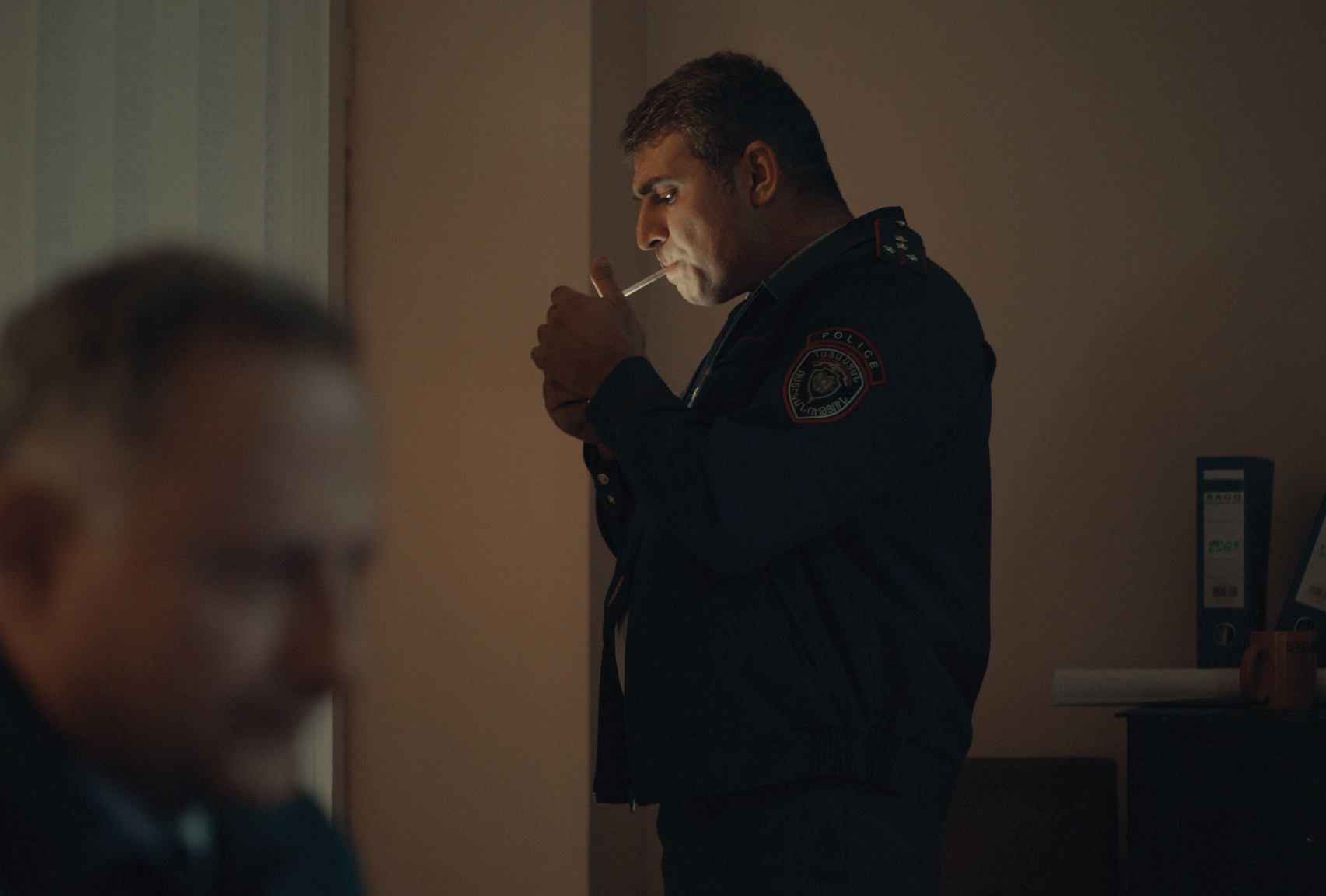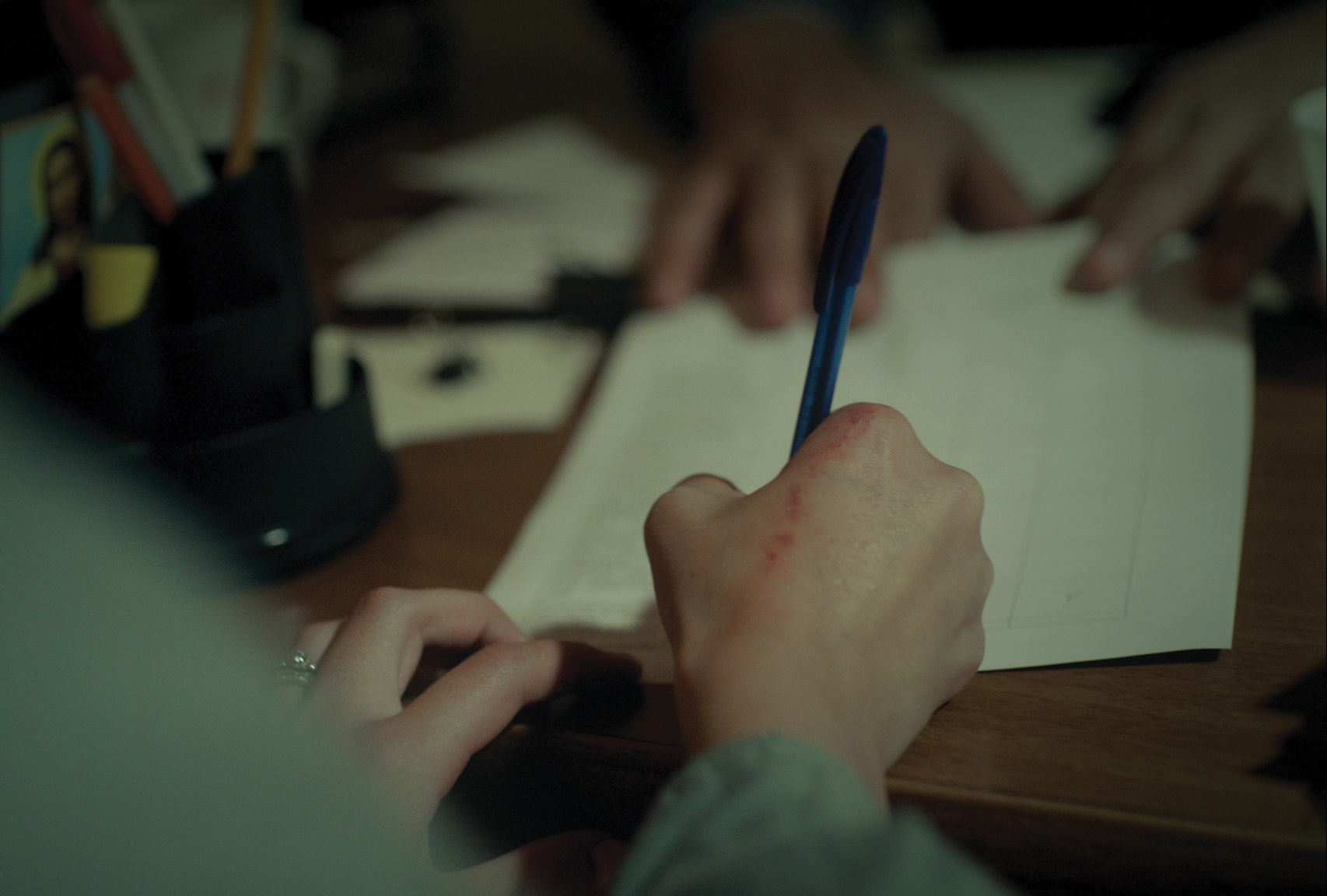Dernier verre avec Beyond the Threshold (Seuil de tolérance)
Entretien avec Angineh Isanians, réalisatrice de Beyond the Threshold (Seuil de tolérance)
D’où vient l’idée de Beyond the Threshold ?
Il a toujours été dans ma nature d’observer les cas où l’on empêche les autres de s’exprimer, où leurs droits sont restreints ou bafoués, même dans des situations en apparence tout-à-fait banales. Je n’ai jamais supporté le fait que notre société fasse comme si certaines injustices étaient normales ou naturelles, en nous les présentant comme étant culturelles ou justifiées. Après avoir mené des recherches approfondies, je me suis rendu compte que cela ne venait pas de l’ignorance des gens, ni de leur volonté de rester dans cette ignorance, mais de tout le système dans lequel nous vivons, qui est programmé pour entretenir cet état de faits. Voilà l’idée qui m’a poussée à réaliser mon premier court métrage. J’ai décidé de ne pas montrer l’événement en lui-même, mais de décrypter la situation qui s’ensuit au commissariat de police, pris comme un symbole de tout ce système.
Comment avez-vous élaboré les personnages des trois policiers et dirigé les acteurs ?
Dans le film, les trois policiers forment un triangle. Trois personnages extrêmes, très différents, mais qui se complètent. J’ai attribué à chacun des traits de caractère complexes, voire contradictoires, pour guider l’interprétation : l’un d’eux est drôle et fait des blagues tout le temps, mais au fond, il se fiche de son boulot, de sa famille et de sa vie. L’autre est brut de décoffrage et a une vision très manichéenne des choses – pas de place pour l’interprétation ou l’empathie. Puis il y a le plus jeune, qui ne veut surtout pas ressembler à ses supérieurs, mais qui ne veut pas non plus les braquer, ni les décevoir – et pourtant, on comprend vite qu’il va y être obligé s’il veut agir selon ce qu’il pense être juste. On voit bien qu’ils font tous partie d’un système dysfonctionnel, qu’il n’y a pas qu’un seul coupable. Et c’est pour cela qu’il n’y a pas qu’un seul personnage principal.
Dans votre film, il y a des plans en caméra subjective. Quel effet souhaitez-vous qu’ils aient sur le spectateur ?
C’est exact, ma caméra se déplace selon l’ambiance dictée par la situation de chaque scène. À tel moment, elle reste immobile, comme pétrifiée, et à tel autre, elle est frénétique, incontrôlable. Lorsqu’on prend le point de vue du personnage au sein du commissariat, je voudrais que le spectateur se sente stressé, mal à l’aise – qu’il comprenne qu’il vient d’entrer dans un monde sans logique, sans loi. Comme le personnage dont on adopte le point de vue, on cherche un lieu sûr dans ce contexte, sans le trouver.
Le titre du film suggère que la situation a dépassé les bornes. Pensez-vous que ce soit le sentiment général sur les violations des droits des femmes en 2020 ?
Le titre est paradoxal. Tout dépend sous quel angle on aborde cette question : du point de vue de celui qui dépasse les limites, ou de celui dont les limites ont été violées et qui n’a plus de lieu sûr où se réfugier. Je pense qu’on devrait tous avoir le courage de dépasser les limites pour tendre vers plus de justice, même si les conséquences sont douloureuses, afin de changer des normes violentes et injustes. Mais je tiens à préciser que le film ne parle pas seulement des violences faites aux femmes. La violence est la violence. Elle commence avec le jeune policier du film qui ne se sent pas libre d’exprimer ce qu’il pense être juste. Et il n’arrive pas à dépasser ces limites pour aider une personne en détresse. C’est aussi une violence inhérente aux systèmes dans lesquels nous évoluons, et elle engendre encore plus de violence.
Pensez-vous que votre histoire soit porteuse d’un message d’espoir (car un policier semble avoir pris conscience de la gravité du problème) ? Ou s’agit-il de l’amer constat d’une lutte sans fin ?
L’histoire est simplement réaliste. L’espoir réside dans les paroles de la chanson que l’on entend à la fin, mais dépend aussi du spectateur : soit il ressent la responsabilité de faire quelque chose avec l’espoir d’améliorer la situation, soit il choisit d’ignorer la vérité, alors ce sera une lutte sans fin.
Quel est l’avenir du format court métrage d’après vous ?
Un très bel avenir attend le court métrage. À une époque où la vitesse est le facteur le plus important de la vie des gens, et où leur patience diminue de jour en jour, mais où il y a tant de messages à faire passer, il y aura toujours une place de choix pour le court métrage.
Demain on reconfine, quels plaisirs culturels conseillez-vous pour échapper à l’ennui ?
Malheureusement, dans mon pays, la guerre a éclaté pendant le confinement en question, et bouleversé la vie des gens. Nous avons oublié l’ennui et compris que le meilleur moment de toute cette histoire, c’était le confinement. Alors, soyez reconnaissants et sachez apprécier ces moments privilégiés en famille – être ensemble et faire des choses ensemble.
Pour voir Beyond the Threshold (Seuil de tolérance), rendez-vous aux séances de la compétition internationale I11.










